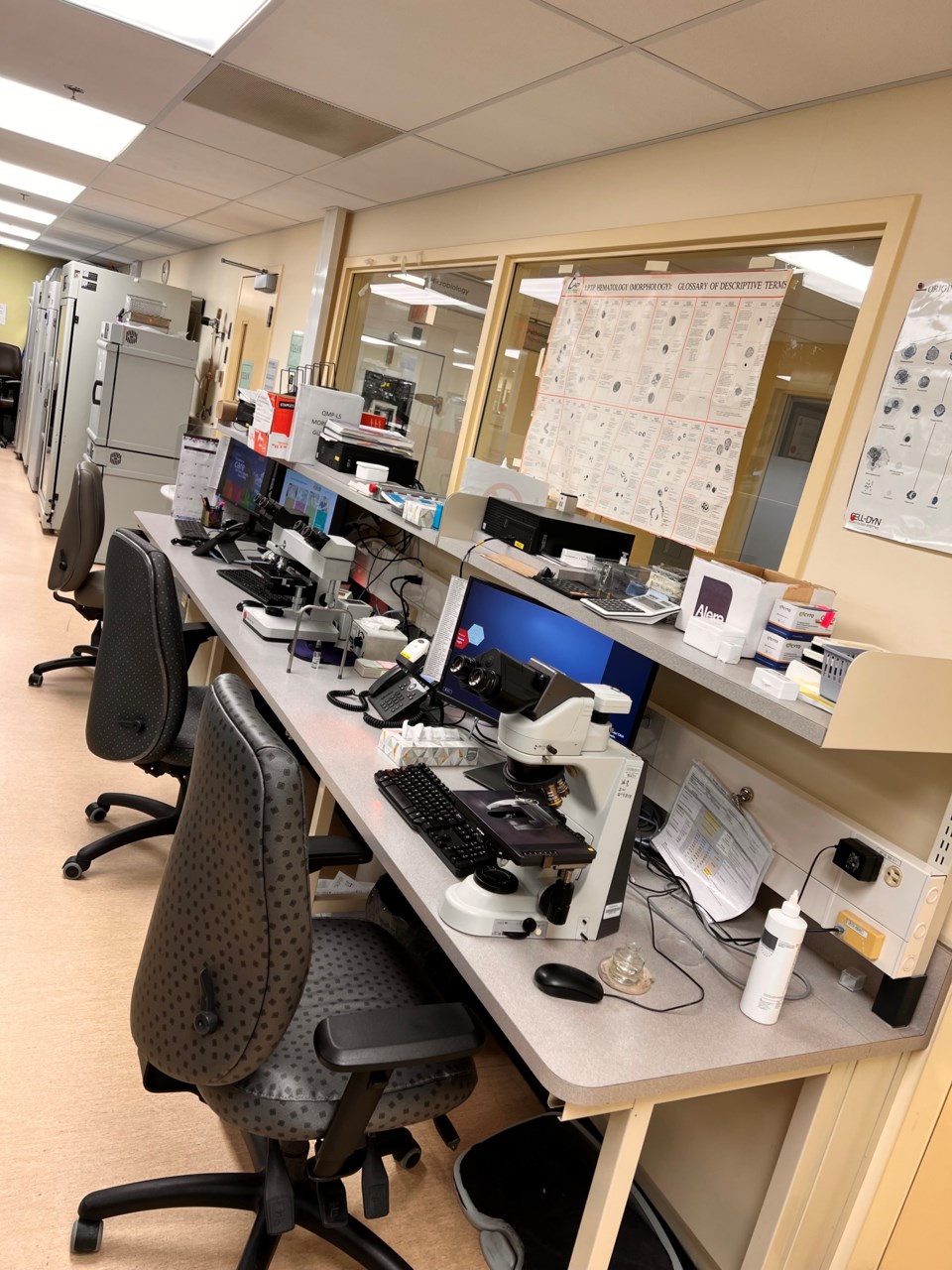A vital part of healthcare system is facing a looming shortage that looks to get worse in the next five years in the Northwest.
Medical laboratory technologists are regulated health professionals that perform laboratory tests on collected samples ordered within hospitals, public health facilities, and other locations — and they're in short supply.
The situation the profession is facing doesn’t get the attention that doctors or nurses get. However, their shortage will be felt just as acutely in the region.
Karen Parker, the program director and quality coordinator for the Kenora Rainy River regional lab program which includes the hospital laboratories in Kenora, Dryden, Atikokan, Sioux Lookout, Red Lake, and Fort Frances, said the profession faces a retirement rate of about 18 per cent in the next one to five years.
“I feel the pain of the bench techs [the technologists working in the lab], I have worked in a couple of the different labs in Northwestern Ontario,” she said. “It doesn't look like we're going to have a magic wand and fill all of our vacancies within the next five years.”
Ray Racette, the CEO of the Lake of the Woods District Hospital in Kenora, said being able to bring in new people is really important, noting that his hospital's lab workforce is predominantly female.
He said retired people are coming back to help pick up the pieces to keep the health system going.
“[They] are coming back to support their colleagues that they're close to, but again, at some point they'll decide that they don't want to continue working because they have retired.”
Michelle Hoad, the CEO of the Medical Laboratory Professional Association of Ontario, said that provincially, 41 per cent of laboratory technologists are eligible to retire in the next four to six years, and many have taken early retirement due to the stress of COVID-19.
Hoad was in Dryden last fall as an invited speaker for the regional lab program’s yearly meeting.
She said she came to update the group with provincial developments, but also to hear about the situation in the Northwest, saying it's especially dire in rural and remote communities.
“The group was so appreciative that I went out there because they feel like someone's finally listening," she said. "They said there are times where they feel like they work and work and work and nobody really understands what they do.”
“We are trying to figure out how can we make sure that the citizens living in our rural and remote communities have access to testing, have access to turn around times that are reasonable.”
Hoad said hospital laboratories make the entire health care system work.
“So nurses can't do their job, and physicians can't do their job unless they get results of lab tests," she said, describing the lab as the engine of health care.
"Your car's not going run unless you have an engine. And within healthcare, [it’s] the lab. [The] system won't run unless you have a lab that's fully staffed and that everybody is working to make sure that those results come out,” she said. “So we are doing our best to try to reinforce that this is a priority.”
The work technologists do is varied and complex, said Georgia Carr, manager of laboratory services at the Thunder Bay Regional Health Sciences Centre.
There are around 170 staff in the lab at the Thunder Bay hospital, with about 60 of them medical technologists, who do everything from transfusion medicine, biochemistry, hematology, microbiology, pathology, and specimen collection or procurement, she said.
“We do 7,300 tests a day here, we're a 365, seven-day a week, 24-hour a day operation. We are so short staffed. It's indescribable,” she said.
“We're struggling just as much as the region and it can often feel demoralizing, not being able to assist them when they run into struggles, because in some ways we feel like the big sister that [should take care of them].”
Carr said Thunder Bay used to have a school of medical technology, from which she graduated, but it closed in 1996 because the job market was saturated at the time.
“Thunder Bay is graduating x-ray technologists, medical radiation technologists, nurses at both the college and the university, physicians at NOSM, [but] we haven't been graduating medical laboratory technologists [locally] since 1996," she said.
"it's a huge, huge gap.”
Medical laboratory technologists were included in the recent expansion of the provincial Learn and Stay grant program designed to train more health care workers in underserved areas. However, the only eligible program in Northern Ontario is in Sudbury.
